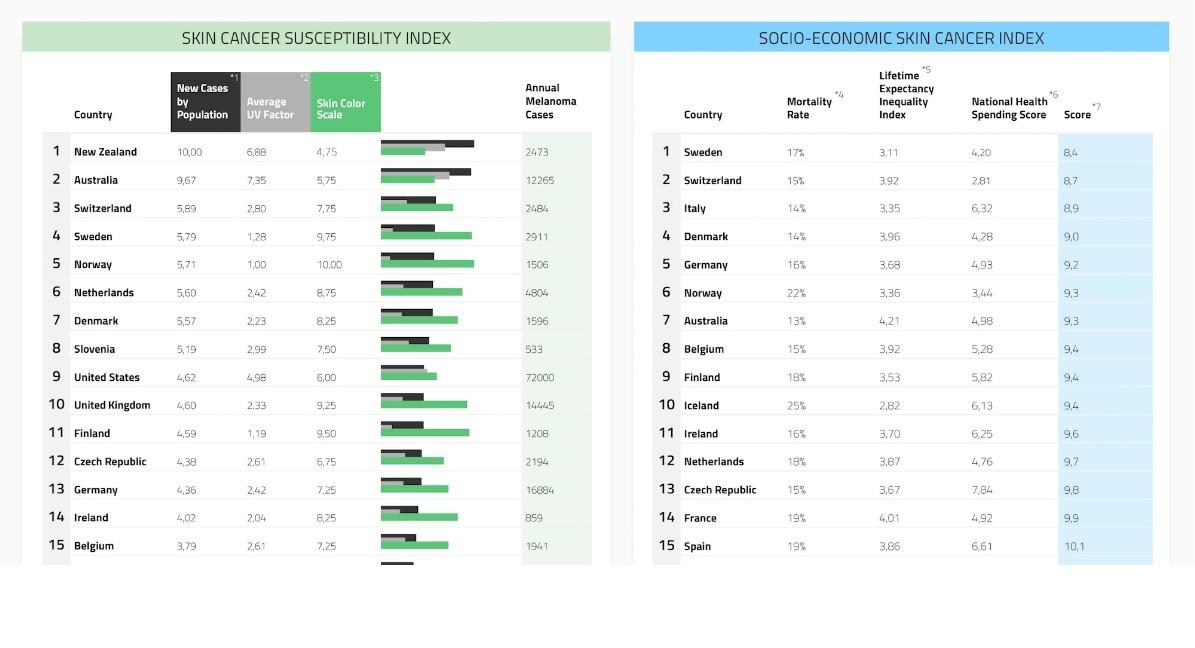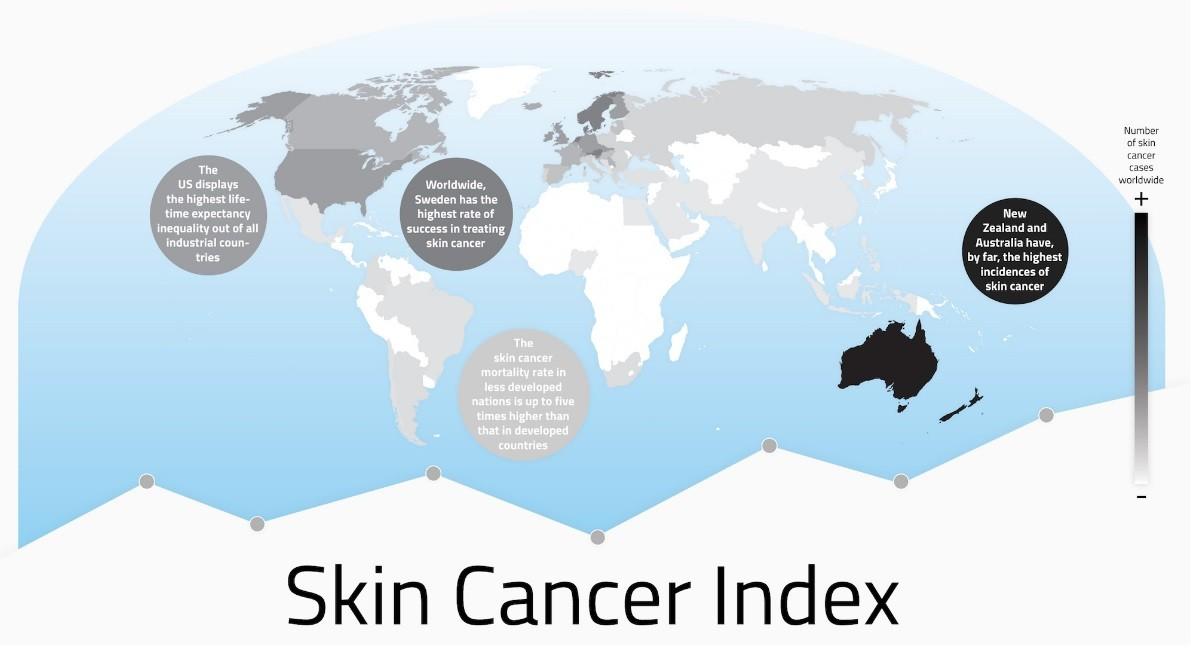
New Zealand and Australia have - by far - the highest susceptibility to skin cancer in the world, according to new statistics.
The 2018 skin cancer index published by German medical analyst group derma.plus reveals almost 2500 new melanoma cases are diagnosed in New Zealand every year.
New Zealand ranked top and Australia in a close second. European countries and the US filled out the top 10, but well behind.

But it's not all bad. While New Zealand ranked highly in terms of skin cancer rates, Kiwis who develop melanoma are less likely to die from it because of New Zealand's high health spending, the results show.
New Zealand spends about $55 million a year on skin cancer alone, while Sweden, which has the fourth-highest rate of melanoma, spent more than any other country analysed.
The Government's latest Budget put the vast bulk of new spending into health - $4 billion - part of which will go toward hospital buildings, with $2 billion of that going directly to DHBs.
The derma.plus report analysed health and government spending data from 62 countries. It highlights the high rates of skin cancer - which claims a life every 10 minutes around the world.

- Australian researchers develop blood test that detects melanoma
- Gel manicures could pose a risk of skin cancer, research suggests
- UK woman's husband saved her life by finding cancerous mole in her leg
The skin cancer mortality rate in less-developed nations was found to be up to five times higher than in developed countries. Nigeria, for example, had the least access to melanoma treatment, which meant more people there per capita died of it.
"The incidence of both non-melanoma and melanoma skin cancers has increased dramatically over the past decades," says Prof Dietrick Abeck, chief medical advisor for derma.plus.
"Worldwide, more than 3 million non-melanoma skin cancers and 150,000 melanoma skin cancers are diagnosed each year. One in every three cancers diagnosed is a skin cancer."
The chance of developing melanoma increases with age. The Ministry of Health says most melanomas are found in people aged 50 years or older, but the disease is reasonably common in younger age groups, especially people aged 25 to 39 years.
The ministry says early identification of a melanoma can lead to earlier and more effective treatment.
Australian researchers have developed the world's first blood test that can detect the early stages of melanoma, and the researchers believe it could save thousands of lives.
The leader of Melanoma Research Group at Edith Cowan University in Perth, Mel Ziman, says it's a game-changer. She says the blood test will "give clinicians another tool to improve diagnostic certainty" of skin cancer.
"It will enable people to be identified at very early stages which is what we want because if you can get rid of melanoma at an early stage people are pretty much cured," she told Newshub.
Melanoma is the fourth-most common cancer diagnosed in New Zealand.
Newshub.
